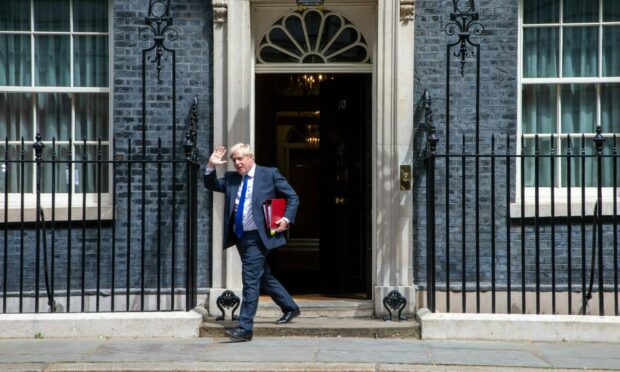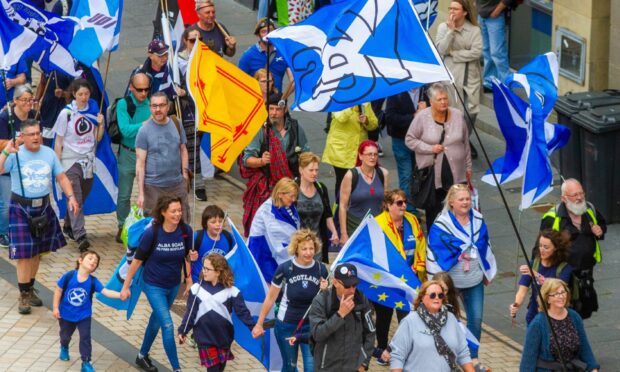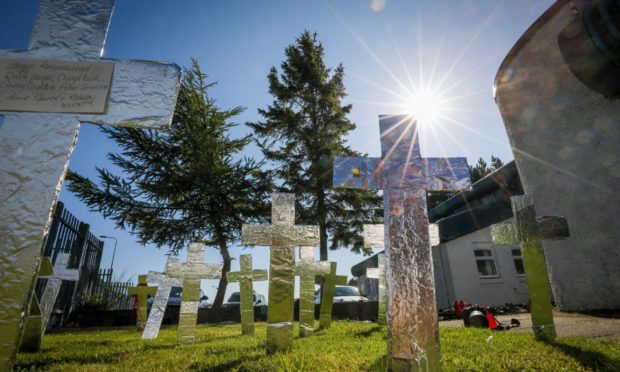Whoever is chosen as Boris Johnson’s successor as Tory leader and prime minister will have their work cut out in Scotland.
As the constitutional row rages on, the next incumbent of Number 10 will play a key role in shaping the futures of people living in Tayside and Fife.
Mr Johnson leaves behind a heaving inbox and a party at Westminster that was at times at loggerheads with their counterparts at Holyrood.
With Rishi Sunak and Liz Truss now set to go head-to-head in a race to win over the party faithful, we take a look at what each of their premierships could mean for you.
1 – Breaking down the ‘yellow wall’
Penny Mordaunt went into the leadership contest saying she would smash the SNP’s “yellow wall” in Scotland – a twist on the Tory conquest of Labour’s “red wall” in England.
Convincing SNP voters in Dundee – 2014’s Yes City – to change their allegiance may prove a difficult task for Liz Truss and Rishi Sunak.
In May’s council elections the Tories were punished for Mr Johnson’s lockdown scandals and the party lost control of Perth and Kinross council.
The next PM will need to do better to have a fighting chance of protecting the union.
2 – Fight against drug deaths
Soaring drug deaths in Scotland have developed into a national emergency over the past half-decade.
Dundee has been at the heart of the crisis with one the worst overdose rates.
The SNP have regularly been accused of failing to act over the scandal, but they insist they need more power from Westminster.
Mr Johnson was opposed to drug consumption rooms – so-called safe places for users.
Could a new PM change direction and work with the SNP and others on the scandal in Scotland?
3 – Levelling Up
Mr Johnson used the loose term “levelling up” to underline one of his main policy goals after becoming Tory leader.
His government’s stated aim was to reduce inequality by giving cash to struggling areas.
But there are fears some areas in Tayside could be left behind as funds are dished out across Britain.
A row erupted after it emerged Dundee City Council did not make a first round bid for support.
An application from Angus Council for £18 million has also now been halted.
Both councils will have opportunities to send in bids further down the road, but critics have warned the Levelling Up scheme risks encroaching on devolution.
European cash is drying up and Brexit was supposed to come with new financial support. The new leader will need to demonstrate how and where.
4 – Tackling the cost of living crisis
For some voters, party politics and constitutional debates seem insignificant next to the cost of living crisis which has gripped Britain.
Energy bills will soar this winter and a hard time could lie ahead for families already struggling.
Drivers in Tayside and Fife have also been feeling the squeeze due to soaring petrol costs.

Tayside hospitality firms warn they are being forced to close their doors for good as inflation continues to rise.
But at a time when poverty campaigners warn people need extra cash, some Tory leadership candidates have instead vowed sweeping tax cuts.
5 – Transport woes
Scotland’s transport infrastructure has been the focus of some anger, with delayed ferry projects and constant rail disruption.
While transport is run from Holyrood, Tory ministers have previously threatened to bypass the Scottish Parliament and step in on key issues.
The SNP promised to dual 80 miles of the A9 before coming to power in 2007, but only two of the 11 sections have been completed to date.
With time rapidly running out to meet the original 2025 completion date, a review of the financing and timetable was due to be completed by summer last year.
But we revealed earlier this year that the blueprint is still being drawn up.
Meanwhile UK Government-owned rail service LNER was brought in to run extra services during The Open after ScotRail services were slashed.
Scottish transport chief Jenny Gilruth faced anger over the lack of trains prior to the announcement, with around 290,000 descending on St Andrews for the golf championship.
It remains to be seen whether either of the leadership hopefuls would allow their own government to attempt to bypass Holyrood – or how MSPs would react to such a move.



